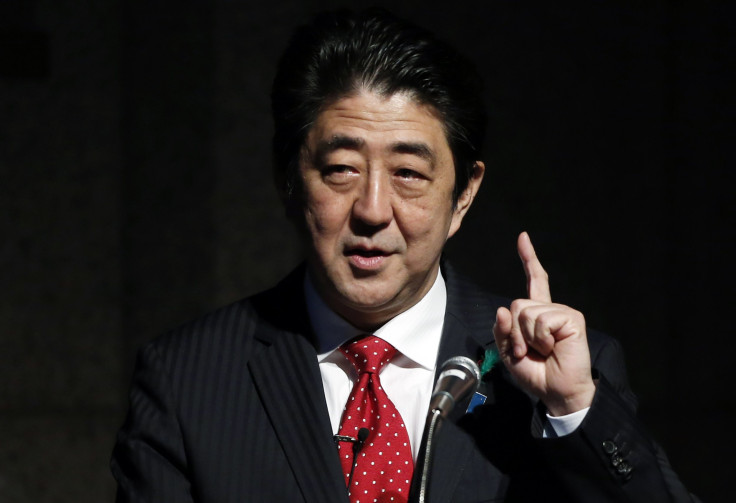Shinzo Abe Sends Traditional Offering to Yasukuni Shrine Leading To Criticism From China and South Korea

Japanese Prime Minister Shinzo Abe has yet again stirred controversy in east Asia by sending a ritual offering to the Yasukuni Shrine, which is viewed as a symbol of Japanese militarism, straining relations with neighbors China and South Korea.
Abe’s offering follows his visit last December to the shrine that honors the nation's war dead along with some regarded as war criminals, which made him the first sitting prime minister to do so. Abe's focus on keeping the Yasukuni Shrine issue alive is seen as a hindrance to his country's efforts to seek stronger ties with China and South Korea, which are also involved in territorial disputes with Japan in the region. Abe's latest move comes only days before President Barack Obama’s three-day visit to Japan. Last year, the U.S. said it was "disappointed" with Abe's visit to the shrine in December.
Abe reportedly sent a “Masakaki” tree offering to the shrine, Japan Daily Press reported. Keiji Furuya, a Japanese cabinet minister, also paid respects to the shrine ahead of a number of lawmakers who are expected to visit the shrine during the ongoing spring festival. Last April, Japan’s internal affairs minister, Yoshitaka Shindo, too had visited the shrine, prompting protests from China.
Adding to tensions between the two Asian powers, a Chinese maritime court in Shanghai on Saturday seized a Japanese ship claiming that the vessel's owner, Mitsui O.S.K. Lines, failed to pay compensation for a wartime contractual obligation.
Over the last few years, numerous cases have been filed in China and South Korea, demanding compensation for forced wartime labor. In February, two Japanese firms were sued in what media reports said at the time was the first instance of a Chinese court accepting such a case.
"It is inevitable that this will have an adverse impact on Japanese companies in China," Chief Cabinet Secretary Yoshihide Suga said Monday, referring to the ship's detention, adding: "We strongly urge the Chinese government to make the proper response."
A spokesman for Mitsui O.S.K. said the company has been informed of the Shanghai court's decision to seize the ship, which is an ore carrier, and that the company is working on an appropriate course of action, Reuters reported.
"Companies that are currently involved with such issues will likely think twice about Chinese businesses, but I believe most Japanese companies have nothing to do with these problems," Akio Takahara, a professor at the University of Tokyo, said, according to Reuters adding: "They might take this development as one factor when they think about investments in China, but I don't think this is a decisive factor at the moment."
© Copyright IBTimes 2024. All rights reserved.






















